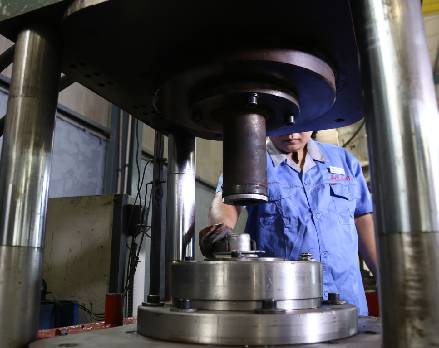 Afrikaans
Afrikaans  Albanian
Albanian  Amharic
Amharic  Arabic
Arabic  Armenian
Armenian  Azerbaijani
Azerbaijani  Basque
Basque  Belarusian
Belarusian  Bengali
Bengali  Bosnian
Bosnian  Bulgarian
Bulgarian  Catalan
Catalan  Cebuano
Cebuano  Corsican
Corsican  Croatian
Croatian  Czech
Czech  Danish
Danish  Dutch
Dutch  English
English  Esperanto
Esperanto  Estonian
Estonian  Finnish
Finnish  French
French  Frisian
Frisian  Galician
Galician  Georgian
Georgian  German
German  Greek
Greek  Gujarati
Gujarati  Haitian Creole
Haitian Creole  hausa
hausa  hawaiian
hawaiian  Hebrew
Hebrew  Hindi
Hindi  Miao
Miao  Hungarian
Hungarian  Icelandic
Icelandic  igbo
igbo  Indonesian
Indonesian  irish
irish  Italian
Italian  Japanese
Japanese  Javanese
Javanese  Kannada
Kannada  kazakh
kazakh  Khmer
Khmer  Rwandese
Rwandese  Korean
Korean  Kurdish
Kurdish  Kyrgyz
Kyrgyz  Lao
Lao  Latin
Latin  Latvian
Latvian  Lithuanian
Lithuanian  Luxembourgish
Luxembourgish  Macedonian
Macedonian  Malgashi
Malgashi  Malay
Malay  Malayalam
Malayalam  Maltese
Maltese  Maori
Maori  Marathi
Marathi  Mongolian
Mongolian  Myanmar
Myanmar  Nepali
Nepali  Norwegian
Norwegian  Norwegian
Norwegian  Occitan
Occitan  Pashto
Pashto  Persian
Persian  Polish
Polish  Portuguese
Portuguese  Punjabi
Punjabi  Romanian
Romanian  Russian
Russian  Samoan
Samoan  Scottish Gaelic
Scottish Gaelic  Serbian
Serbian  Sesotho
Sesotho  Shona
Shona  Sindhi
Sindhi  Sinhala
Sinhala  Slovak
Slovak  Slovenian
Slovenian  Somali
Somali  Spanish
Spanish  Sundanese
Sundanese  Swahili
Swahili  Swedish
Swedish  Tagalog
Tagalog  Tajik
Tajik  Tamil
Tamil  Tatar
Tatar  Telugu
Telugu  Thai
Thai  Turkish
Turkish  Turkmen
Turkmen  Ukrainian
Ukrainian  Urdu
Urdu  Uighur
Uighur  Uzbek
Uzbek  Vietnamese
Vietnamese  Welsh
Welsh  Bantu
Bantu  Yiddish
Yiddish  Yoruba
Yoruba  Zulu
Zulu Carrier Idler Solutions for Efficient Conveyor Systems
The Role of Carrier Idler in Modern Transportation
In the world of modern transportation, the efficiency and reliability of cargo carriers have become pivotal. One of the key components that play a significant role in the functionality of these carriers is the carrier idler. Understanding its importance will shed light on how it contributes to smoother operations in various transport systems.
A carrier idler is a crucial part of the conveyance system, primarily used in belt transport mechanisms. These components are designed to support and guide the conveyor belts used in various industries, including mining, shipping, and manufacturing. By acting as a stabilizing force, carrier idlers ensure that the belt maintains an appropriate tension and alignment, which is essential for optimal performance. Their proper functioning is vital for the longevity of the belt and the equipment as a whole.
The effectiveness of a carrier idler can also have a significant impact on energy consumption
. When idlers are properly aligned and functioning, they reduce friction and resistance, allowing the system to operate more smoothly. This efficiency translates to lower energy costs, contributing to a more sustainable operation. In industries where profit margins are tight, even marginal reductions in energy consumption can lead to substantial savings over time.carrier idler

Moreover, the type of material used in manufacturing carrier idlers can significantly affect their durability and performance. Advanced materials that resist wear and tear can prolong the lifespan of idlers, ultimately reducing downtime and maintenance costs. Innovations in design and material science have led to the creation of idlers that can withstand harsh environmental conditions, further ensuring that transport systems continue to operate smoothly regardless of external factors.
In recent years, the advent of smart technology and automation has begun to influence the development of carrier idlers. Sensors and monitoring systems integrated into the idlers enable real-time data collection regarding their performance and condition. This data can be analyzed to predict when maintenance is needed, preventing costly breakdowns and enhancing operational efficiency. The incorporation of such technologies exemplifies the trend toward increased automation in transportation systems, where data-driven insights lead to more informed decision-making.
Furthermore, with the rise of e-commerce and global trade, the pressure on logistics and transportation systems has increased dramatically. Carrier idlers play a crucial role in increasing the throughput of material handling systems, thereby meeting the growing demand for efficient delivery of goods. As supply chains become more complex, the reliability of each component, including the carrier idler, becomes essential to maintaining the speed and efficiency required in modern logistics.
In conclusion, carrier idlers are indispensable components in the realm of transportation and logistics. Their ability to ensure belt stability, reduce energy consumption, and enhance the overall efficiency of conveyance systems makes them essential. With ongoing innovations in materials and technology, the future of carrier idlers looks promising, paving the way for even more efficient and sustainable transportation solutions. As industries continue to evolve, the significance of these components will only increase in ensuring that carriers meet the demands of an ever-changing market.
-
Revolutionizing Conveyor Reliability with Advanced Rubber Lagging PulleysNewsJul.22,2025
-
Powering Precision and Durability with Expert Manufacturers of Conveyor ComponentsNewsJul.22,2025
-
Optimizing Conveyor Systems with Advanced Conveyor AccessoriesNewsJul.22,2025
-
Maximize Conveyor Efficiency with Quality Conveyor Idler PulleysNewsJul.22,2025
-
Future-Proof Your Conveyor System with High-Performance Polyurethane RollerNewsJul.22,2025
-
Driving Efficiency Forward with Quality Idlers and RollersNewsJul.22,2025





























